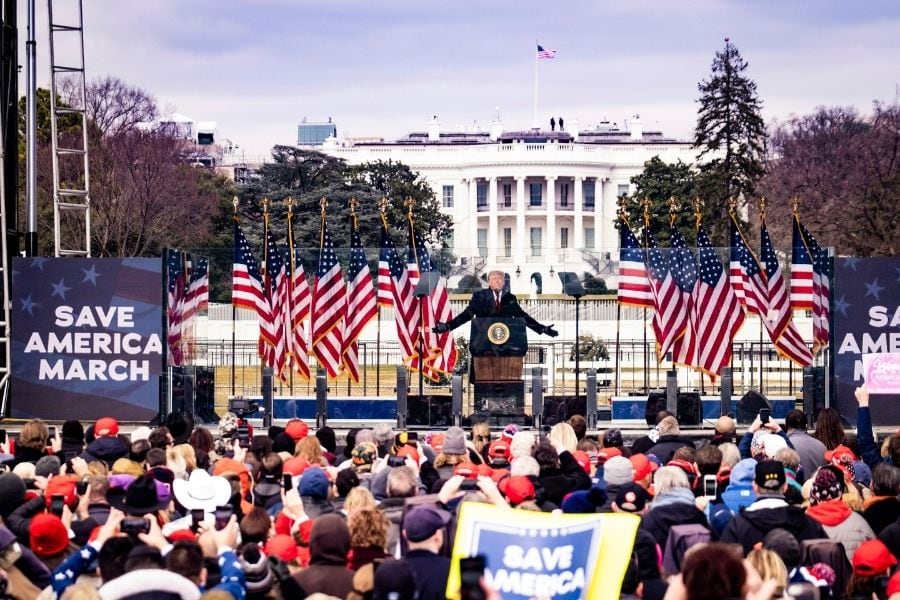
After banning Trump, Facebook and Twitter face scrutiny about inaction abroad
For years, Facebook and Twitter have largely rebuffed calls to remove hate speech or other comments made by public figures and government officials that civil society groups and activists said risked inciting violence
 President Donald Trump speaks at a rally outside the White House on Wednesday, Jan. 6, 2021, before the attack on the Capitol. For years, Facebook and Twitter have largely rebuffed calls to remove hate speech or other comments made by public figures and government officials that civil society groups and activists said risked inciting violence.
President Donald Trump speaks at a rally outside the White House on Wednesday, Jan. 6, 2021, before the attack on the Capitol. For years, Facebook and Twitter have largely rebuffed calls to remove hate speech or other comments made by public figures and government officials that civil society groups and activists said risked inciting violence.
Image: Pete Marovich/The New York Times
LONDON — In Sri Lanka and Myanmar, Facebook kept up posts that it had been warned contributed to violence. In India, activists have urged the company to combat posts by political figures targeting Muslims. And in Ethiopia, groups pleaded for the social network to block hate speech after hundreds were killed in ethnic violence inflamed by social media.
“The offline troubles that rocked the country are fully visible on the online space,” activists, civil society groups and journalists in Ethiopia wrote in an open letter last year.
For years, Facebook and Twitter have largely rebuffed calls to remove hate speech or other comments made by public figures and government officials that civil society groups and activists said risked inciting violence. The companies stuck to policies, driven by American ideals of free speech, that give such figures more leeway to use their platforms to communicate.
But last week, Facebook and Twitter cut off President Donald Trump from their platforms for inciting a crowd that attacked the U.S. Capitol. Those decisions have angered human rights groups and activists, who are now urging the companies to apply their policies evenly, particularly in smaller countries where the platforms dominate communications.
“When I saw what the platforms did with Trump, I thought, 'You should have done this before and you should do this consistently in other countries around the world,'” said Javier Pallero, policy director at Access Now, a human rights group involved in the Ethiopia letter. “Around the world, we are at the mercy of when they decide to act.”
©2019 New York Times News Service




